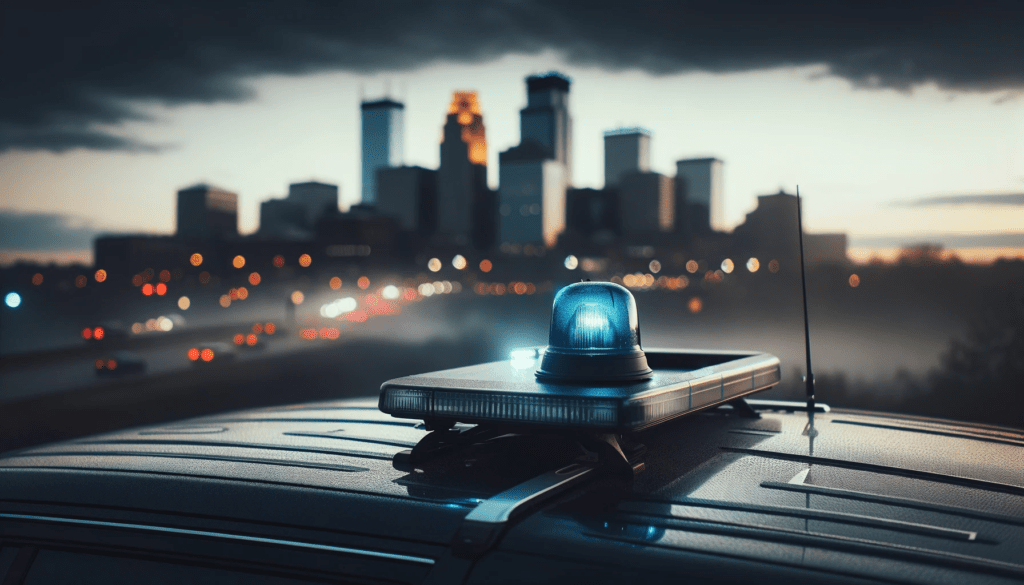
Unarmed Black motorist’s fatal encounter with police reignites national debate on race and justice.
By Darius Spearman (africanelements)
Support African Elements at patreon.com/africanelements and hear recent news in a continuous playlist during your morning commute. Plus get early access to ad-free video content.
Introduction: The Minneapolis Shooting Incident and Its Aftermath
In the summer of 2023, Minneapolis became the epicenter of a major legal and social controversy following the fatal shooting of Rick Cobb II, an unarmed Black motorist, by state trooper Ryan Londregan. This incident has reignited crucial conversations about racial justice and law enforcement protocols. Londregan faces charges of second-degree murder, first-degree assault, and second-degree manslaughter, as reported by UPI. Moreover, the event has raised significant questions about the use of force and the treatment of minority groups by the police.
The Incident: Unfolding of the Tragic Traffic Stop
The incident that sparked widespread controversy occurred during a routine traffic stop on Interstate 94 near Minneapolis. Trooper Ryan Londregan, alongside other officers, attempted to detain Rick Cobb II. This quickly escalated when Londregan shot Cobb shortly after demanding he exit his vehicle. This sequence of events, captured on police camera footage, raises critical concerns about the immediate use of lethal force in what began as a standard procedure. This incident not only questions law enforcement’s judgement but also spotlights the broader issue of police interactions with minority communities (UPI). The video evidence played a crucial role in shaping the public’s understanding of the incident and fueled discussions on police accountability and the need for transparent law enforcement practices.
Legal and Ethical Implications: Examining the Charges
The charges against Ryan Londregan, including second-degree murder, first-degree assault, and second-degree manslaughter, have significant legal and ethical implications. These charges suggest a breach of the protocol expected of law enforcement officers, particularly in situations involving potential racial biases. Hennepin County Attorney Mary Moriarty highlighted the gravity of the situation by stating,
“As with all Minnesota law enforcement officers, state troopers may only use deadly force when it is necessary to protect a person from a specific identified threat of great bodily harm or death” (UPI).
This case has become a pivotal point in discussions about police conduct, raising questions about the standards and training provided to officers. The legal proceedings are closely watched, as they may set a precedent for how similar cases are handled in the future.
Community Response: Impact on Minneapolis and Beyond
The shooting of Rick Cobb II has significantly impacted the Minneapolis community and beyond. In the aftermath of the incident, local and national groups have voiced their concerns and demands for justice, reflecting a broader call for police reform and racial equality. This case has reignited discussions on systemic issues within law enforcement and the need for more comprehensive training and accountability measures. The community’s response underscores the ongoing struggle for equitable treatment under the law and the importance of addressing racial disparities in police interactions. This incident has not only affected the local community but also contributes to the national conversation about law enforcement and race relations in America.
Moving Forward: Implications for Policing and Racial Justice
The incident involving Ryan Londregan and Rick Cobb II has significant implications for policing and racial justice in America. It highlights the urgent need for reform in law enforcement practices, especially regarding the use of force and interactions with minority communities. This case serves as a catalyst for change, sparking conversations and potentially leading to policy reforms aimed at improving police training, accountability, and community relations. The pursuit of justice in this case is not just about one incident but is part of a broader movement towards ensuring fair and equitable treatment for all citizens, regardless of race. This situation underscores the importance of continuous dialogue and action to address systemic issues in law enforcement and promote racial equality.
About the author:
Darius Spearman is a Professor of Black Studies at San Diego City College, where he has been pursuing his love of teaching since 2007. He is the author of several books, including Between The Color Lines: A History of African Americans on the California Frontier Through 1890. See more black news and history content at africanelements.org.
